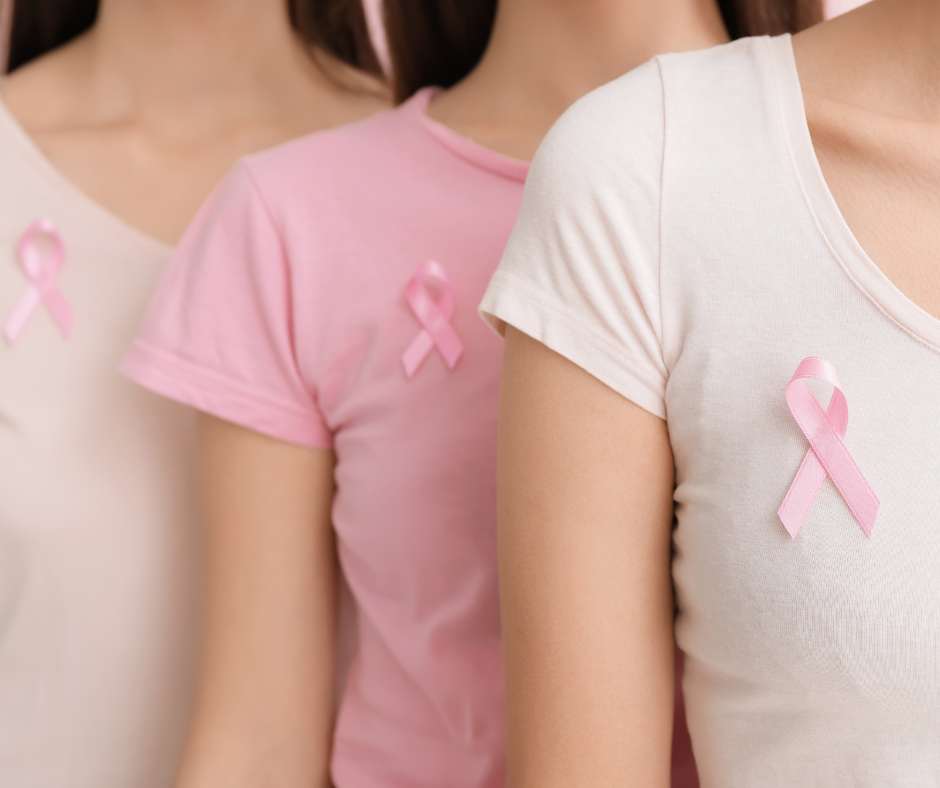
Breaking Barriers to Breast Cancer Care: What You Need to Know
October is Breast Cancer Awareness Month, a time to focus on prevention, early detection, and support for those navigating a diagnosis. This blog was inspired by a recent event that Cameron hosted, Expert Panel: Early Detection and Survival Stories that brought together specialists and survivors to discuss early detection strategies and share inspiring survival stories.
Barry Wertz, one of Cameron’s Radiologist Physicians Assistants and Panel member shared, “The Empowering Women seminar was an impactful and inspiring gathering. Breast Cancer Awareness events really emphasize the collective power and unity in tackling such significant issues. It is important for key stakeholders in our community to work with our hospital leaders to continue to support women’s health, screening and close follow-up particularly after October of Breast Cancer Awareness month”.
From work obligations to fear of the unknown, many individuals delay their mammograms and other vital checkups. Ignoring symptoms or delaying care can be detrimental, so don’t hesitate to prioritize your health. This blog will explore the critical importance of paying attention to your body’s signals and seeking timely medical advice. We’ll share tips on recognizing early warning signs, how to navigate common health screenings, and the role preventive care plays in long-term wellness.
Breaking Through Barriers
Many people avoid breast cancer screenings for various reasons. Some are fearful of discomfort or anxiety of a potential diagnosis. However, today’s mammograms are more advanced, offering a less painful experience and significantly improving detection rates. If you’re doing regular self-checks and notice something unusual, don’t wait—get it checked out by your provider.
It’s also important to be vigilant when looking in the mirror. As part of your self-exams, pay attention to any changes in the symmetry of your breasts, as this could indicate that further investigating is necessary.
Family Support
If someone you love is diagnosed with breast cancer, your role in their life is important. Offer to accompany them to appointments, help with family responsibilities, and advocate for their care. Standing alongside them can make a significant difference.
Although no studies definitively prove that a strong support system increases survival rates, patients with loved ones by their side often show up consistently to appointments, follow through with treatments, and maintain a positive outlook, which can be invaluable in their fight.
Addressing the Cost of Care
Finances can be another barrier to breast cancer care. For those who need assistance, programs such as the Breast and Cervical Cancer Program (BCCP) offer help with treatment costs. Additionally, local cancer societies provide resources to guide you through the financial and emotional aspects of your cancer journey.
Expedited Care and What to Expect
The first point of contact for breast cancer concerns is often your OB-GYN. Healthcare providers are diligent about getting patients in for mammograms and ultrasounds as quickly as possible, often within a week or two. Screening mammograms do not require a doctor’s order, so you can schedule one directly.
There’s a 10% callback rate after mammograms, which can be nerve-wracking. But more than half of these callbacks are not cause for alarm. If you are called back, don’t panic. Follow through with additional testing for clarity and peace of mind.
You’re Not Alone
For those without a strong family support system, support groups can be a lifeline. They provide a safe space to express worries and find solidarity with others on a similar path. Your body will change, but a strong partner or support system will stand by your side. Survivors also emphasize the importance of reducing stress through diet, exercise, and therapy. Whether it’s physical therapy after a mastectomy to improve muscle tightness or mental health support to cope with anxiety, there are resources available to help you navigate recovery.
Male Breast Cancer: A Reminder for Families
Breast cancer is not exclusive to women—men can also develop it, especially if there’s a family history. If a male family member has breast cancer, female relatives should be especially vigilant about their own risk and consider genetic testing if appropriate.
The coordinator of the expert panel, Lisa O’Neil – David, Cameron’s Volunteer and Development Coordinator, shared, “I want to extend my heartfelt thanks to the community and the dedicated staff of Cameron Hospital for joining us at the Trine University T. Furth Student Event Center for the Empowering Women’s Expert Panel. Your presence and participation made the event truly special. The questions from our guests and the insightful responses from our expert panel were incredibly powerful. We experienced a wide range of emotions, and I believe everyone left with a deeper understanding of the importance of early detection and genetics in healthcare”.
All proceeds during October, Women’s Breast Cancer Awareness Month, go towards providing free mammograms and biopsies for women who are underinsured or uninsured. This initiative is crucial in ensuring that every woman has access to essential healthcare services.
Breast cancer is a battle no one should fight alone. With awareness, early detection, and strong support systems, we can help ensure better outcomes for everyone impacted by this disease. Don’t wait—schedule your mammogram, check in on your loved ones, and know that resources are available to help you through each step of the journey. Cameron is here to support you every step of the way.
©2025 Cameron Memorial Community Hospital
416 E. Maumee Street, Angola, IN 46703

Recent Comments